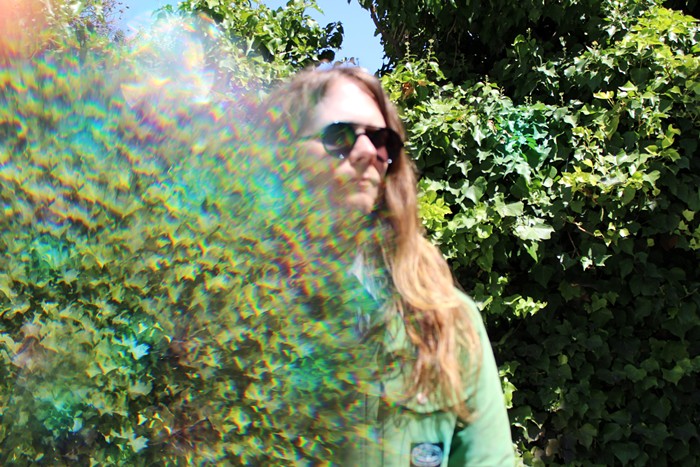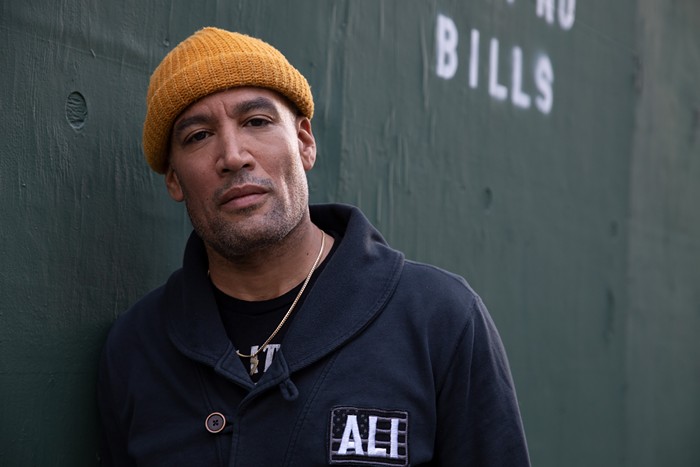Rollerball's second release from Road Cone, Bathing Music, shows their development from the abstract, freakout rock band of their first release to a band whose approach could still harbor their spooky industrial grindings, while also cultivating a structure that could encompass a greater variety of atmospheric emotion. Rollerball fluctuates between beauty and fear with an amalgam of instruments and orchestrations (including synthesizer, trumpet, saxophone, bass, drums, sampler) and an open structure.
Vocalist/trumpeter Shane DeLeon says their music is often composed in late-night jam sessions and collaborations with friends: "A lot of the textures and just different emotions come about from playing with different people." Keyboardist Mae Starr adds, "If we're all focused and listening to each other that would classify as a good night of emoting. We don't take music lightly. To us, it's an emotionally important thing. Anger, too," she continues. "Anger is good. We want people to be able to feel that."
Rollerball is not dogmatic in their approach to music. The structure of their songs is open to improvisation, experimentation, and the exuberance of the individual players, whether it's a skronky solo on the saxophone, or a curtain of textured noise dropped over the heads of the audience. These dynamic elements that can be heard at a Rollerball show--both the violent and the pastoral--are steeped in human feeling, and each time I've seen them play, they've only gotten better at weaving a more complex and more frightening atmosphere for emoting.


















